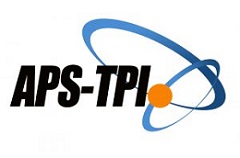Senior High School Students Problem Solving in Terms of Mathematical Abilities
Abstract
Keywords
Full Text:
PDFReferences
Aydogdu, M., & Ayaz, M. F. (2008). The importance of problem solving in mathematics curriculum. Physical Sciences. 3(4), 538-545. Online Publication. Di Unduh dari https://dergipark.org.tr/en/pub/nwsaphysic/issue/20040/213558
Brookhart, S. M. (2010). How to assess higher-order thinking skills in your classroom. Alexandria: ASCD.
Dossey, J. (2017). Problem solving from a mathematical standpoint. In B. Csapó & J. Funke (Eds.), The nature of problem solving: Using research to inspire 21st century learning (pp. 59–72). Paris: OECD Publishing.
Dossey, J. (2017). Problem solving from a mathematical standpoint. In B. Csapó & J. Funke (Eds.), The nature of problem solving: Using research to inspire 21st century learning (pp. 59–72). Paris: OECD Publishing.
Hesse, F., Care, E., Buder, J., Sassenberg, K., & Griffin, P. (2015). A framework for teachable collaborative problem solving skills. In Assessment and teaching of 21st century skills (pp. 37-56). Dordrecht: Springer. DOI: 10.1007/978-94-017-9395-7
Kania, N. (2018). Proses Pemecahan Masalah Matematis Calon Guru Sekolah Dasar. Prosiding Seminar Nasional Pendidikan Matematika: Pendidikan Matematika Di Era Digital, Bandung. 337-344.
Kattou, M., Kontoyianni, K., Pitta-Pantazi, D., & Christou, C. (2013). Connecting mathematical creativity to mathematical ability. Zdm Mathematics Education, 45(2), 167-181. DOI: 10.1007/s11858-012-0467-1
Kementerian Pendidikan dan Kebudayaan Republik Indonesia. (2016a). Salinan Lampiran Peraturan Menteri Pendidikan dan Kebudayaan Nomor 20, Tahun 2016, tentang Standar Kompetensi Lulusan Pendidikan Dasar dan Menengah. Jakarta: Kemendikbud.
Kementerian Pendidikan dan Kebudayaan Republik Indonesia. (2016b). Salinan Lampiran Peraturan Menteri Pendidikan dan Kebudayaan Nomor 21, Tahun 2016, tentang Standar Kompetensi Lulusan Pendidikan Dasar dan Menengah. Jakarta: Kemendikbud
Lithner, J. (2015). Learning mathematics by creative or imitative reasoning. In 12th International Congress on Mathematical Education, Seoul. 487-506.
Liu, H. K. J. (2016). Correlation research on the application of e-learning to students’ self-regulated learning ability, motivational beliefs, and academic performance. EURASIA Journal of Mathematics, Science and Technology Education, 12(4), 1091-1100.
NCTM (2000). Standards for school mathematics. Reston: National Council of Teachers of Mathematics.
Organisation for Economic Co-operation and Development. (2013). PISA 2012 assessment and analytical framework: Mathematics, reading, science, problem solving and financial literacy. Paris: OECD Publishing.
Shamaki, Timothy Ado (2015). Influence of Learning Environment on Students’ Academic Achievement in Mathematics: A Case Study of Some Selected Secondary Schools in Yobe State – Nigeria. Journal of Education and Practice, 6 (34), 40-44.
Siswono, T. Y. E. (2018). Pembelajaran Matematika Berbasis Pengajuan dan Pemecahan Masalah. Bandung: PT Remaja Rosdakarya.
Szabo, A., & Andrews, P. (2018). Uncovering the relationship between mathematical ability and problem solving performance of swedish upper secondary school students. Scandinavian Journal of Educational Research, 62(4), 555-569.
Zubaidah, S. (2016). Keterampilan abad ke-21: Keterampilan yang diajarkan melalui pembelajaran. Makalah disajikan dalam Seminar Nasional Pendidikan dengan Tema “isu-isu strategis pembelajaran MIPA Abad 21, Sintang.
Refbacks
- There are currently no refbacks.





.png)













